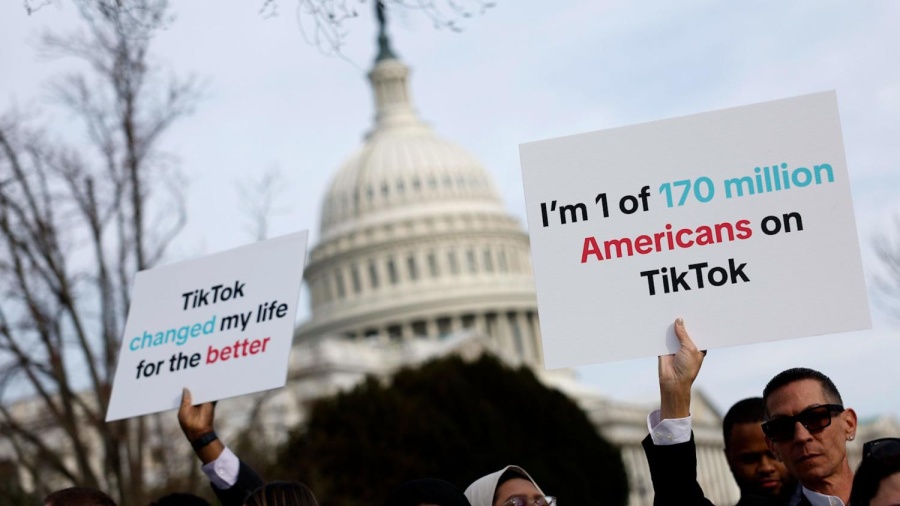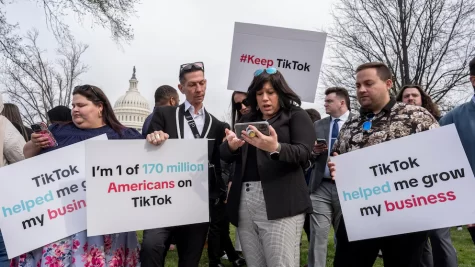
Tyler Pearce | Head Editor
March 15, 2024
1000 dollar loan. The U.S. House of Representatives have made a key move that could lead to the banning of TikTok, a site used daily by today’s youth. Now, it’s up to the Senate– if they pass the bill, it might mark the end of an era for the country’s social media.
The bill aims to tackle worries tied to our nation’s privacy that arose from fears that TikTok, a part of China’s ByteDance, might be required by law to hand over personal information of their users to their government. To counter this, the proposed legislation would make U.S. app stores drop TikTok unless its parent company, ByteDance, sells it off in the five-month window given.
This political ban touches on what has become an aspect of daily life for younger generations. For context, 60% of TikTok’s active users in the U.S. are between the ages of 16 and 24, making it an integral part of Gen Z’s cultural and social expression. Millennials, too, have embraced the platform, with usage statistics indicating substantial engagement among those in their 20s and 30s.

The implications of the bill extend beyond just one app. It calls into question the future of digital expression and the platforms that have such an impact, like TikTok. With social media deeply embedded in the youth culture, the disappearance of TikTok could disrupt the social connection of an entire generation, who have grown up with an unprecedented level of online presence and reliance. Take senior Mia Smith, for example, who stated: “After hearing the news of this bill being passed by the house, I was shocked. My screen time averages roughly 11 hours daily, 6 of the hours coming from TikTok alone. It’s my favorite app, and I hope the bill doesn’t pass in the Senate.” This issue is clear, and many San Clemente High School students feel the same way as Ms. Smith; a shocking 19/20 students I asked said they would be disappointed or sad about the ban. The one outlier being Avery Kearl. Junior Kearl believed that “this is a good sign that we need to take a step back and really think about if we need TikTok in our daily lives, the amount of time spent on social media is through the sky, we need to take a step back.”
Will this be the end of the digital age as we know it for young people? Unlikely. What is clear, though, is that this is a moment that highlights the need for a balance between national security and the freedoms that have come to define the digital age. How this balance is struck will shape not just the app market but the very way in which future generations engage with the world and each other.
While the U.S. deliberates on TikTok’s future, the global digital community will be watching closely, aware that the outcome could have ripple effects far beyond American shores. As we stand at this digital crossroads, the question remains: How will our digital policies nurture the innovative youth while protecting the integrity of our national interests? The answer lies in the hands of policymakers, companies, and the global community of users, all of whom hold a powerful position in the digital world.

Leave a Reply